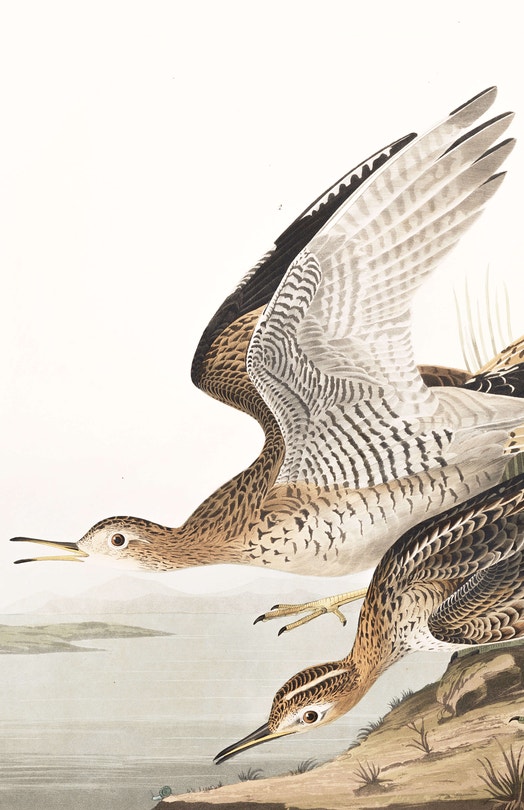Sail down river. No ice, but strong cold wind; river slightly over meadows.
Was that large diver which was on the edge of the shore and scooted away down-stream as usual, throwing the water about for a quarter of a mile, then diving, some time afterward flying up-stream over our head, the goosander or red-breasted merganser?
It was large, with, I should say, a white breast, long reddish bill, bright-red or pink on sides or beneath, reddish-brown crest, white speculum, upper part of throat dark, lower white with breast.
H. D. Thoreau, Journal, November 30, 1854
Was that large diver the goosander or red-breasted merganser? Compare March 23, 1859 (“As we sit there, we see coming, swift and straight, northeast along the river valley, not seeing us and therefore not changing his course, a male goosander, so near that the green reflections of his head and neck are plainly visible. He looks like a paddle-wheel steamer, so oddly painted up, black and white and green, and moves along swift and straight like one. Ere long the same returns with his mate, the red-throated, the male taking the lead. ”); April 7, 1855 (“I plainly see the vermilion bill of the male and his orange legs when he flies (but he appears all white above), and the reddish brown or sorrel of the neck of the female, and, when she lifts herself in the water, as it were preparatory to flight, her white breast and belly. . . .I suspect that about all the conspicuous white ducks I see are goosanders.”) See also A Book of the Seasons, by Henry Thoreau, The Sheldrake (Merganser, Goosander)
H. D. Thoreau, Journal, November 30, 1854
Was that large diver the goosander or red-breasted merganser? Compare March 23, 1859 (“As we sit there, we see coming, swift and straight, northeast along the river valley, not seeing us and therefore not changing his course, a male goosander, so near that the green reflections of his head and neck are plainly visible. He looks like a paddle-wheel steamer, so oddly painted up, black and white and green, and moves along swift and straight like one. Ere long the same returns with his mate, the red-throated, the male taking the lead. ”); April 7, 1855 (“I plainly see the vermilion bill of the male and his orange legs when he flies (but he appears all white above), and the reddish brown or sorrel of the neck of the female, and, when she lifts herself in the water, as it were preparatory to flight, her white breast and belly. . . .I suspect that about all the conspicuous white ducks I see are goosanders.”) See also A Book of the Seasons, by Henry Thoreau, The Sheldrake (Merganser, Goosander)











